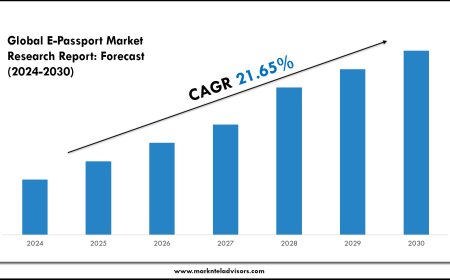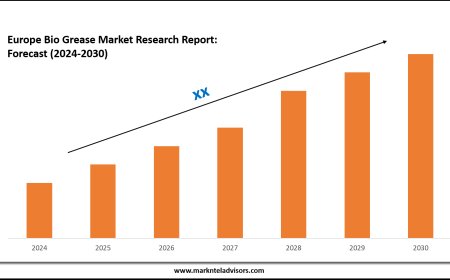Why Real Estate Investors Across the U.S. Are Turning to SEO in 2025 to Outpace the Market
With market uncertainty and digital competition rising, real estate investors across the U.S. are embracing SEO strategies to generate high-quality seller leads. Explore how SEO is changing the way deals are sourced in 2025.

In 2025, the American housing market will be more fragmented, competitive, and digitally driven than ever. And real estate investorsfrom Phoenix to Pittsburghare adapting fast.
Across the U.S., a clear trend has emerged: investors are no longer waiting for the next direct mail lead or referral call. Instead, theyre building digital ecosystems that bring sellers to them. At the center of this transformation? Strategic, intent-driven SEO.
The Lead Funnel Has Gone Digital
Motivated sellers were once found through flyers, signs, and neighborhood driving. But times have changed. In cities like Charlotte, Fresno, and Jacksonville, distressed homeowners are now more likely to Google phrases like sell my house fast due to foreclosure or how to sell an inherited home in [city] before responding to a postcard.
This shift in behavior is not anecdotalits measurable. According to internal reports from SEO To Real Estate Investors, a specialized real estate SEO agency, nationwide search volume for keywords targeting motivated sellers has risen significantly over the last 12 months. If you focus on a variety of long-tail keywords, your website traffic is likely toincrease.
From Reactive to Proactive: SEO as the New Outreach
Unlike paid ads that disappear the moment the budget runs dry, SEOwhen done rightoffers long-term visibility. Real estate investors are learning that being found is more powerful than chasing.
A recent real estate SEO case study from an investor in Atlanta illustrates this perfectly. After implementing local SEO strategiesincluding zip-code-specific landing pages and blogs that addressed seller pain pointsthe investor saw a 300% increase in organic leads within 90 days. Their average cost per acquisition dropped by 72%, and most leads converted more quickly because trust was established before the call.
This is what modern outreach looks like, says a strategist behind several top-performing SEO campaigns. Its not about shouting louder. Its about showing up earlierand more helpfullythan anyone else.
Top Real Estate SEO Companies Are Now Lead Generators
The role of SEO agencies has also evolved. Its no longer just about ranking for we buy houses [city]. The top real estate SEO companies in 2025 are functioning like digital architectsdesigning content paths, schema markups, conversion journeys, and neighborhood authority clusters.
This has made local presence more important than ever. An investor trying to source deals in Austin, for example, needs more than a homepagethey need structured content on probate laws in Travis County, guidance for selling during divorce, and insights on avoiding foreclosure in Texas.
The agencies that specialize in real estate investor SEO are now offering comprehensive ecosystems, including technical SEO, neighborhood keyword clustering, blog strategies, and even AI-powered content audits, to ensure Googles SGE (Search Generative Experience) prioritizes their clients.
The Role of Google's AI Is Reshaping Visibility
Googles integration of AI-generated summaries at the top of search results has changed the game for real estate SEO. Known as the Search Generative Experience, this shift rewards content that is highly structured, localized, and written with user intent in mind.
Generic cash home buyer pages are getting buried. Meanwhile, investor websites that answer questions like Can I sell a house in probate without an agent in Illinois? or How do liens affect my home sale in Arizona? are being featured in the AI summary layer, above ads and traditional links.
Content now has to be not only helpful, but perfectly aligned with how people think and search, says a lead content strategist from SEO To Real Estate Investors. That means schema, headings, FAQs, and real languagenot marketing fluff.
From Big Cities to Small Markets, Investors Are Playing Catch-Up
While large metro markets like New York, Los Angeles, and Houston were early adopters of digital-first outreach, 2025 has seen a surge in SEO adoption in smaller cities and suburban zones.
Investors in places like Fort Wayne, Reno, and Spokane are now realizing that owning the top spot on Google in a mid-sized market is often more cost-effectiveand just as lucrativeas running paid ads in larger metropolitan areas.
One Ohio investor shared that after launching blog posts focused on fire-damaged properties and pre-foreclosure timelines in Toledo, their site became the top local result for sell damaged house fast Toledo. That single ranking now generates 2030 seller leads per month, entirely organically.
Its Not Just About LeadsIts About Trust
Perhaps the most significant benefit of SEO in 2025 isnt just trafficits credibility.
Homeowners dealing with probate, foreclosure, or divorce are often wary of being taken advantage of. When an investor arrives with structured, informative, and localized contentbefore any sales pitchthey establish trust before the first call.
This is where real estate investor SEO outperforms other channels. Instead of blasting ads, it builds confidence. Sellers feel heard, not hunted.
What the Data Says About SEO-Driven Seller Behavior
Data compiled from multiple case studies across Florida, Texas, and Illinois reveals that:
-
Sellers who arrive through organic search convert 32% faster than those who come through paid ads.
-
SEO leads are 70% cheaper on average than PPC over six months
-
Pages that included local FAQs, legal context, and emotional considerations (such as how to sell my late mothers home) had twice thesession times and 44% more form completions.
In short, SEO isn't just a channelits a psychological advantage.
Wrap Up: Visibility is the New Competitive Edge
As the real estate market remains unpredictable and interest rates fluctuate, one thing remains constant: sellers want clarity before committing. And in 2025, that clarity is being delivered through Google search, not doorsteps.
For real estate investors who want to scale sustainably, SEO is no longer optional. Its the digital foundation of trust, visibility, and growth.
The question isnt if SEO worksits whether youre willing to show up before your competitors do.

































